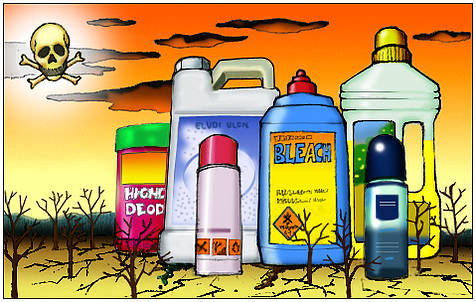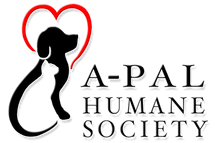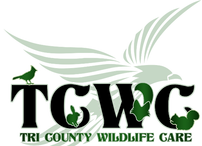So Many Common Products are TOXIC

Many common items we use every day have a negative impact on wildlife. These things are so common in our lives that we never think about what damage they cause to wildlife and to us. Here are a few things to think about.
Wet wipes should never be flushed as they can cause blockages in sewer systems. Wet wipes may also contain plastic which is used to make them sturdier. This plastic never completely breaks down but becomes microplastic that can be harmful to marine life. Microbeads in cosmetics have been banned in the United States for the same reason; the itty bitty bits of plastic end up in the ocean and are consumed by marine life which you later eat. Turtles mistake wet wipes for jellyfish; but since the wipes have no nutritional value, they die of starvation. They aren’t good for us either. A search on the Environmental Working Group (ewg.org) shows that they frequently contain substances that are linked to cancer, immunotoxicity, allergies and so much more. You can make your own.
You thought olive oil was ubiquitous, in foods, cosmetics, soaps and more. But 66 million tons of palm oil well outstrips the production of olive oil. And it is in everything – foods, cosmetics, cleaning products and fuel. Palm oil plantations cover more than 27 million hectares of the earth. The production of palm oil has destroyed forests as well as human settlements. The impact on wildlife is devastating and the loss of tropical rain forests affects our climate. Your health is affected as well by the fatty acid esters in palm oil that are known to damage DNA and cause cancer.
Here are a few tips on how to avoid palm oil. Cook at home with fresh ingredients. This is better for your health, our wildlife and our planet. Read labels when you buy products and avoid those with palm oil. Half of all grocery products contain palm oil including food and cleaning products. Biofuels, like palm oil, are also used in motor vehicle fuels, so walk, bicycle or use public transportation when you can.
Ladies and gentlemen want to look their best, but here, again, is a source of toxic ingredients. By searching ewg.org you can find safer products for everything you put on your body. And yes, there is an app for that. This website maintains a list of EWG verified products (no chemicals of concern, full transparency, and strictest standards for your health).
Sunscreens may save your skin from cancer, but the oxybenzone breaks down coral. Some resort beach communities are banning sunscreen. You don’t have to be at the beach, however, as just showering off the sunscreens at home eventually end up out to sea. Here is a safe list of sunscreens for babies and kids and you can find out more at ewg.org.
Let’s think about the items we use every day and find safer, wildlife-friendly solutions wherever we can.
Tri County Wildlife Care, a local nonprofit started in 1994, is dedicated to the rescue and rehabilitation of our native wildlife and helping our community live in balance with wildlife. They envision a world where wildlife and people thrive together. For more information call (209) 283-3245, or visit pawspartners.org.
Wet wipes should never be flushed as they can cause blockages in sewer systems. Wet wipes may also contain plastic which is used to make them sturdier. This plastic never completely breaks down but becomes microplastic that can be harmful to marine life. Microbeads in cosmetics have been banned in the United States for the same reason; the itty bitty bits of plastic end up in the ocean and are consumed by marine life which you later eat. Turtles mistake wet wipes for jellyfish; but since the wipes have no nutritional value, they die of starvation. They aren’t good for us either. A search on the Environmental Working Group (ewg.org) shows that they frequently contain substances that are linked to cancer, immunotoxicity, allergies and so much more. You can make your own.
You thought olive oil was ubiquitous, in foods, cosmetics, soaps and more. But 66 million tons of palm oil well outstrips the production of olive oil. And it is in everything – foods, cosmetics, cleaning products and fuel. Palm oil plantations cover more than 27 million hectares of the earth. The production of palm oil has destroyed forests as well as human settlements. The impact on wildlife is devastating and the loss of tropical rain forests affects our climate. Your health is affected as well by the fatty acid esters in palm oil that are known to damage DNA and cause cancer.
Here are a few tips on how to avoid palm oil. Cook at home with fresh ingredients. This is better for your health, our wildlife and our planet. Read labels when you buy products and avoid those with palm oil. Half of all grocery products contain palm oil including food and cleaning products. Biofuels, like palm oil, are also used in motor vehicle fuels, so walk, bicycle or use public transportation when you can.
Ladies and gentlemen want to look their best, but here, again, is a source of toxic ingredients. By searching ewg.org you can find safer products for everything you put on your body. And yes, there is an app for that. This website maintains a list of EWG verified products (no chemicals of concern, full transparency, and strictest standards for your health).
Sunscreens may save your skin from cancer, but the oxybenzone breaks down coral. Some resort beach communities are banning sunscreen. You don’t have to be at the beach, however, as just showering off the sunscreens at home eventually end up out to sea. Here is a safe list of sunscreens for babies and kids and you can find out more at ewg.org.
Let’s think about the items we use every day and find safer, wildlife-friendly solutions wherever we can.
Tri County Wildlife Care, a local nonprofit started in 1994, is dedicated to the rescue and rehabilitation of our native wildlife and helping our community live in balance with wildlife. They envision a world where wildlife and people thrive together. For more information call (209) 283-3245, or visit pawspartners.org.

